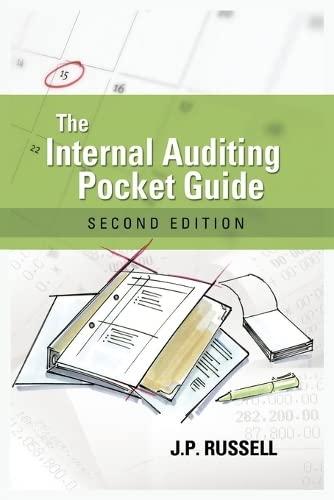Question
Case study - Business background: Funfair Limited a retailer specialised in selling kid toys. The company was established in 2002 in Bristol and has now
Case study - Business background:
Funfair Limited a retailer specialised in selling kid toys. The company was established in 2002 in Bristol and has now been among the top three largest toy retailers in the South-West of England. It experienced a rapid growth in the past five years with two new stores being opened in Cardiff and Bath. Besides, the company gradually expands to receive online orders through its website and app. The board of directors reports that the company achieves an average growth rate of 4% per annum and predicts this figure to increase to 5.2% in the next five years. While it is hard to compete with large suppliers in London and the surroundings, Funfair Limited targets customers living in the South-West of England where it finds more young families with kids at different ranges of age than in the North.
To maintain its continuous operation, Funfair Limited has strategic trading relationship with two overseas toy manufacturers: CoCo Limited, based in Shanghai, China, and Lucky Luke Limited, based in Barcelona, Spain. Thanks to a good credit history, the company is offered a 2-month credit and frequently receives discounts from these suppliers for bulk orders. Meanwhile, Funfair gives customers an average of 1 month credit and those paying within 14 days receive a 5% discount.
Funfairs expenses are mainly attributed to rent and wages. It is currently paying rent for three stores located in Bristol, Cardiff and Bath, and two warehouses in Bristol. The company is also responsible for maintenance and insurance of the properties. Other expenses come from office stationery, electricity bills, telephone bills and general expenses.
The task:
You have been working as an accountant for Funfair since it was established. You are assigned to help Peter, an apprentice accountant, who joined Funfair in early October. Peters task is to enter transactions during November into the company books and then report to you. Following are the transactions occurred in November.
On 1st November, the opening balances of bank and cash accounts were 12,500 and 1,200 respectively. The account receivable balance of customer Newgen brought forward from October was 940. The account payable balance of supplier CoCo Limited brought forward from October was 1,400. Opening capital balance was 13,240.
On 5th November, Funfair bought supplies from CoCo Limited for 3,900 and from Lucky Luke for 2,000 on credit and paid rent for 6,450 by cheque.
On 8th November, it purchased a new office equipment from Intel Limited for 4,000 by cheque and sold 1,700 to Newgen and 960 to Little Tiger on credit.
As the company needs more capital to open a new store early next year, Funfair has applied a five-year bank loan in September. The bank has approved the loan application and sent 10,000 to the bank account on 12th November. On the same day, Newgen returned 250 goods to Funfair.
After checking the order from CoCo Limited on 5th November, Funfair identified some faulty products and returned 350 goods to CoCo on 15th November.
On 20th November, Funfair paid wages for 7,400 by cheque and 800 general expenses in cash. Newgen cleared its balance by cheque and received 5% discount.
On 22nd November, Funfair made another credit purchase order from CoCo Limited for 6,200.
Funfair sold 5,000 goods by cheque and 2,500 goods for cash on 26th November. On the same day, the owner withdrew 1,000 from the business bank account for his personal use.
On 29th November, Funfair paid November telephone bill in cash for 580. It also cleared the balance with Lucky Luke and received a 3% discount.
Peters book entries were as follows:
|
| Debit | Credit |
| 5th November | CoCo 3,900 | Purchases 3,900 |
|
| Rent 6,450 | Bank 6,540 |
| 8th November | Purchases 4,000 | Bank 4,000 |
|
| Newgen 1,700 | Sales 1,700 |
| 12th November | Bank 10,000 | Bank loan 10,000 |
|
| Returns in 250 | Newgem 250 |
| 15th November | CoCo 350 | Returns out 300 |
| 20th November | Wages 7,400 | Bank 7,400 |
|
| General expenses 800 | Bank 800 |
| 22nd November | Purchases 6,200 | Bank 6,200 |
| 26th November | Bank 5,000 | Sales 5,000 |
|
| Cash 2,700 | Sales 2,500 |
|
| Capital 1,000 | Bank 1,000 |
| 29th November | Cash 580 | Telephone 580 |
A shortage of 160 was found on the credit side of the trial balance.
Requirements:
1) Explain to Peter why it is important for Funfair to keep accounting records.
2) Identify the key users and discuss their purposes of using Funfairs accounting information.
3) Identify current and non-currents assets that can be owned by Funfair. Explain the difference in classifying assets between Funfair and a toy manufacturer.
4) Identify the errors that caused the trial balance unequal. For each error, using your understanding of the double-entry technique to explain the type of error and how to correct it in T-accounts.
5) After correcting the errors, balance off all accounts.
6) Show Peter the correct trial balance for the month ended 30th November.
Step by Step Solution
There are 3 Steps involved in it
Step: 1

Get Instant Access to Expert-Tailored Solutions
See step-by-step solutions with expert insights and AI powered tools for academic success
Step: 2

Step: 3

Ace Your Homework with AI
Get the answers you need in no time with our AI-driven, step-by-step assistance
Get Started


